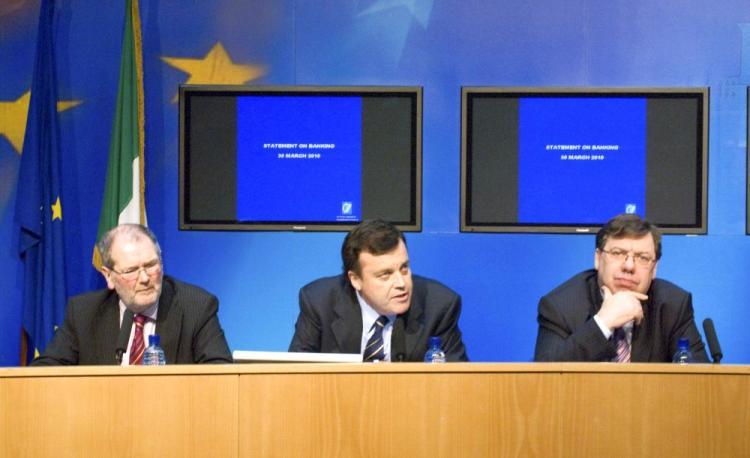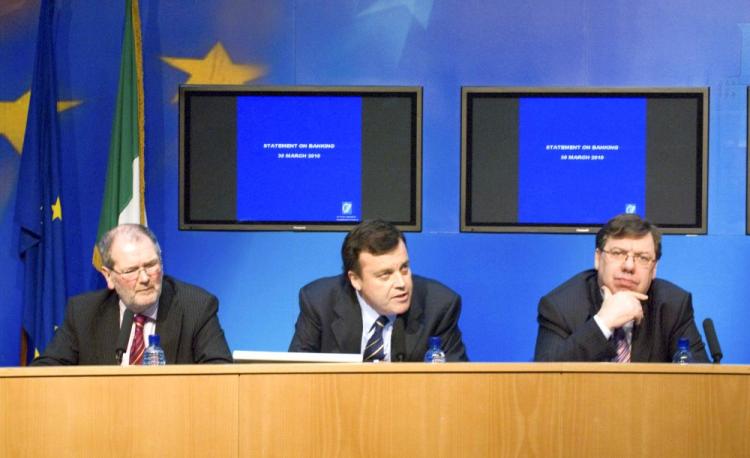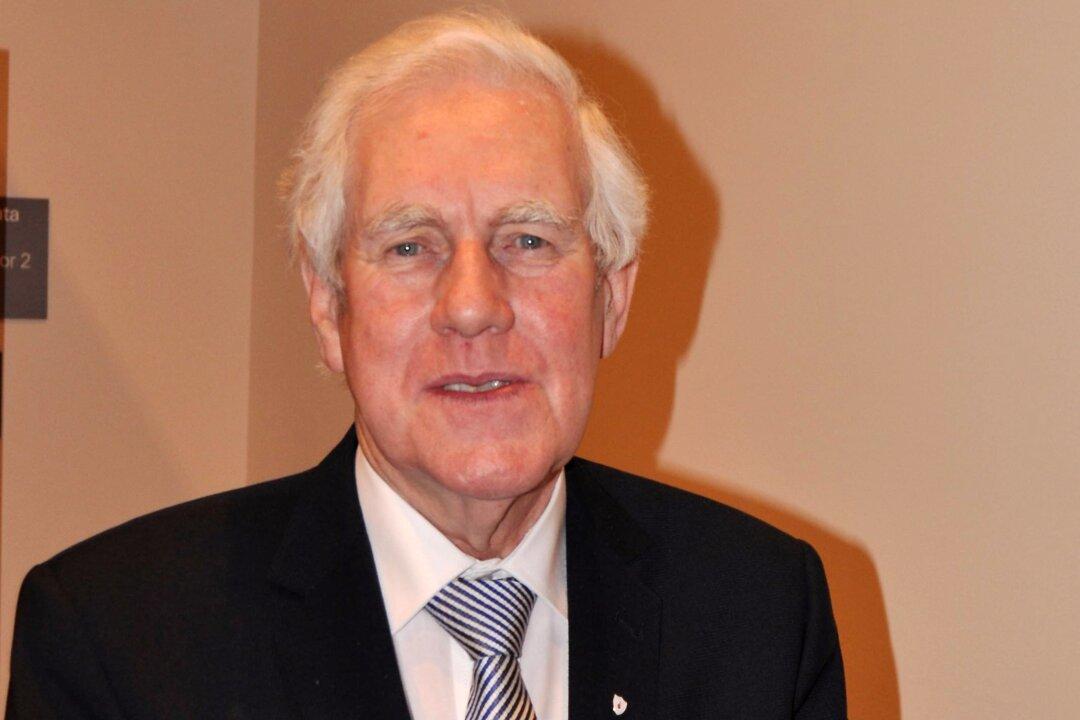At the end of March the Irish National Asset Management Agency (NAMA) acquired its first batch of the anticipated 81 billion euros (US$109.5 billion) loan buyback from troubled Irish banks at an average discount of 47 percent.
Speaking to the media last week, Minister of Finance Connor Lenihan said, “This country has come a long way since we introduced the state guarantee 18 months ago. Back then, our banks were on the brink of financial collapse. ... We are now in a position to stabilize the deficit and we are on a firm path to economic recovery.”
NAMA completed the transfer of an initial tranche of loans from Irish Nationwide Building Society and EBS Building Society. Commenting on both of these financial institutions, Lenihan said, “Each society must recognize the position they have gotten themselves into. They must both focus on making themselves more efficient. Their future value will be enhanced by a committed drive to improving efficiencies in the coming months.”
The agency has determined that the Bank of Ireland must raise additional equity of 2.7 billion euros (US$3.6 billion) by the end of the year to meet new capital standards governing Irish banks.
“I believe that the Bank of Ireland has a strong future,” said Lenihan regarding the bank’s future.
The acquisition of the first cut of loans from the two remaining participating institutions—Allied Irish Banks Plc (AIB) and Anglo Irish Bank—is expected to happen by early April. At that point, AIB will transfer 3.29 billion euros (US$4.4 billion) at an average discount of 43 per cent.
Because AIB is in a position to raise capital through sale of overseas assets, Lenihan recommended that AIB’s first step in meeting its capital needs is to require the sale of these assets by the end of the year, subject to regulatory clearance. “The bank will immediately commence the process of sale of assets in the United States, Poland, and Great Britain,” said Lenihan.
As for Anglo the minister said, “Finding a long-term solution for Anglo Irish Bank is by far the biggest challenge in resolving the banking crisis. The sheer size of the bank means there are no easy or low cost solutions.
“I understand why many want us to close this bank. ... The unavoidable reality is that the bank has incurred losses from its large-scale property lending.” The minister believes that “unpalatable as it is, only the taxpayer can provide that capital.”
In a statement, Frank Daly, chairman of NAMA, said, “NAMA is a key element in resolving the difficulties of the Irish banking sector. Thanks to the considerable effort, dedication and skill of all involved in NAMA, the loan transfers have commenced within a month of EU approval.
“The Board of NAMA’s guiding principle to date has been to safeguard the interests of taxpayers by taking a scrupulously objective view of the value of the underlying assets and the security attaching to each and every loan. We will remain resolutely focused on taxpayers’ interests as our work continues in the months ahead.”
Brendan McDonagh, chief executive of NAMA said, “Our sole focus at NAMA is to bring proper and disciplined management to these loans and borrowers with the aim of achieving the best possible return and to protect the interests of the taxpayer. We will assess each borrower’s viability rigorously over the coming months as part of the business plan review process, which will be a new start for all the parties involved.
Mr. McDonagh also added that borrowers whose loans have been acquired by NAMA would be required to submit a plan outlining how they propose to honor their loan commitments. Where these plans are approved by NAMA, it will monitor the borrower’s performance to ensure they adhere to the commitments and targets that they agreed to. If these deadlines are not met NAMA will take whatever actions it considers necessary to protect the interests of the taxpayer.
Speaking to the media last week, Minister of Finance Connor Lenihan said, “This country has come a long way since we introduced the state guarantee 18 months ago. Back then, our banks were on the brink of financial collapse. ... We are now in a position to stabilize the deficit and we are on a firm path to economic recovery.”
NAMA completed the transfer of an initial tranche of loans from Irish Nationwide Building Society and EBS Building Society. Commenting on both of these financial institutions, Lenihan said, “Each society must recognize the position they have gotten themselves into. They must both focus on making themselves more efficient. Their future value will be enhanced by a committed drive to improving efficiencies in the coming months.”
The agency has determined that the Bank of Ireland must raise additional equity of 2.7 billion euros (US$3.6 billion) by the end of the year to meet new capital standards governing Irish banks.
“I believe that the Bank of Ireland has a strong future,” said Lenihan regarding the bank’s future.
The acquisition of the first cut of loans from the two remaining participating institutions—Allied Irish Banks Plc (AIB) and Anglo Irish Bank—is expected to happen by early April. At that point, AIB will transfer 3.29 billion euros (US$4.4 billion) at an average discount of 43 per cent.
Because AIB is in a position to raise capital through sale of overseas assets, Lenihan recommended that AIB’s first step in meeting its capital needs is to require the sale of these assets by the end of the year, subject to regulatory clearance. “The bank will immediately commence the process of sale of assets in the United States, Poland, and Great Britain,” said Lenihan.
As for Anglo the minister said, “Finding a long-term solution for Anglo Irish Bank is by far the biggest challenge in resolving the banking crisis. The sheer size of the bank means there are no easy or low cost solutions.
“I understand why many want us to close this bank. ... The unavoidable reality is that the bank has incurred losses from its large-scale property lending.” The minister believes that “unpalatable as it is, only the taxpayer can provide that capital.”
In a statement, Frank Daly, chairman of NAMA, said, “NAMA is a key element in resolving the difficulties of the Irish banking sector. Thanks to the considerable effort, dedication and skill of all involved in NAMA, the loan transfers have commenced within a month of EU approval.
“The Board of NAMA’s guiding principle to date has been to safeguard the interests of taxpayers by taking a scrupulously objective view of the value of the underlying assets and the security attaching to each and every loan. We will remain resolutely focused on taxpayers’ interests as our work continues in the months ahead.”
Brendan McDonagh, chief executive of NAMA said, “Our sole focus at NAMA is to bring proper and disciplined management to these loans and borrowers with the aim of achieving the best possible return and to protect the interests of the taxpayer. We will assess each borrower’s viability rigorously over the coming months as part of the business plan review process, which will be a new start for all the parties involved.
Mr. McDonagh also added that borrowers whose loans have been acquired by NAMA would be required to submit a plan outlining how they propose to honor their loan commitments. Where these plans are approved by NAMA, it will monitor the borrower’s performance to ensure they adhere to the commitments and targets that they agreed to. If these deadlines are not met NAMA will take whatever actions it considers necessary to protect the interests of the taxpayer.






